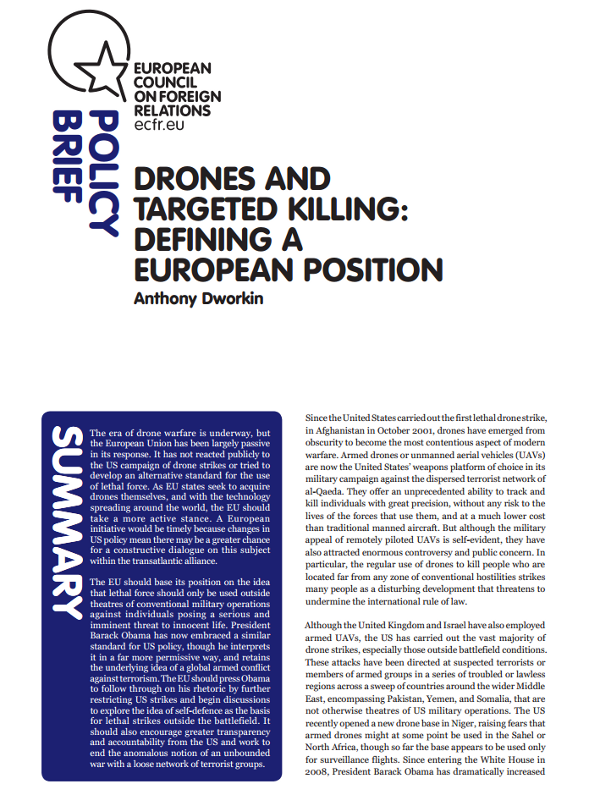
Relations between the United States and Europe hit a low point following revelations that Washington was spying on European Union buildings and harvesting foreign email messages.
Behind the scenes, though, it is not data protection and surveillance that produces the most complications for the transatlantic intelligence relationship, but rather America's use of armed drones to kill terrorist suspects away from the battlefield. Incidents such as the recent killing of at least 17 people in Pakistan are therefore only likely to heighten European unease.
In public, European governments have displayed a curiously passive approach to American drone strikes, even as their number has escalated under Barack Obama’s presidency. Many Europeans believe that the majority of these strikes are unlawful, but their governments have maintained an uneasy silence on the issue. This is partly because of the uncomfortable fact that information provided by European intelligence services may have been used to identify some targets. It is also because of a reluctance to accuse a close ally of having violated international law. And it is partly because European countries have not worked out exactly what they think about the use of drones and how far they agree within the European Union on the question. Now, however, Europe’s muted stance on drone strikes looks likely to change.
Behind the scenes, though, it is not data protection and surveillance that produces the most complications for the transatlantic intelligence relationship, but rather America's use of armed drones to kill terrorist suspects away from the battlefield. Incidents such as the recent killing of at least 17 people in Pakistan are therefore only likely to heighten European unease.
In public, European governments have displayed a curiously passive approach to American drone strikes, even as their number has escalated under Barack Obama’s presidency. Many Europeans believe that the majority of these strikes are unlawful, but their governments have maintained an uneasy silence on the issue. This is partly because of the uncomfortable fact that information provided by European intelligence services may have been used to identify some targets. It is also because of a reluctance to accuse a close ally of having violated international law. And it is partly because European countries have not worked out exactly what they think about the use of drones and how far they agree within the European Union on the question. Now, however, Europe’s muted stance on drone strikes looks likely to change.







